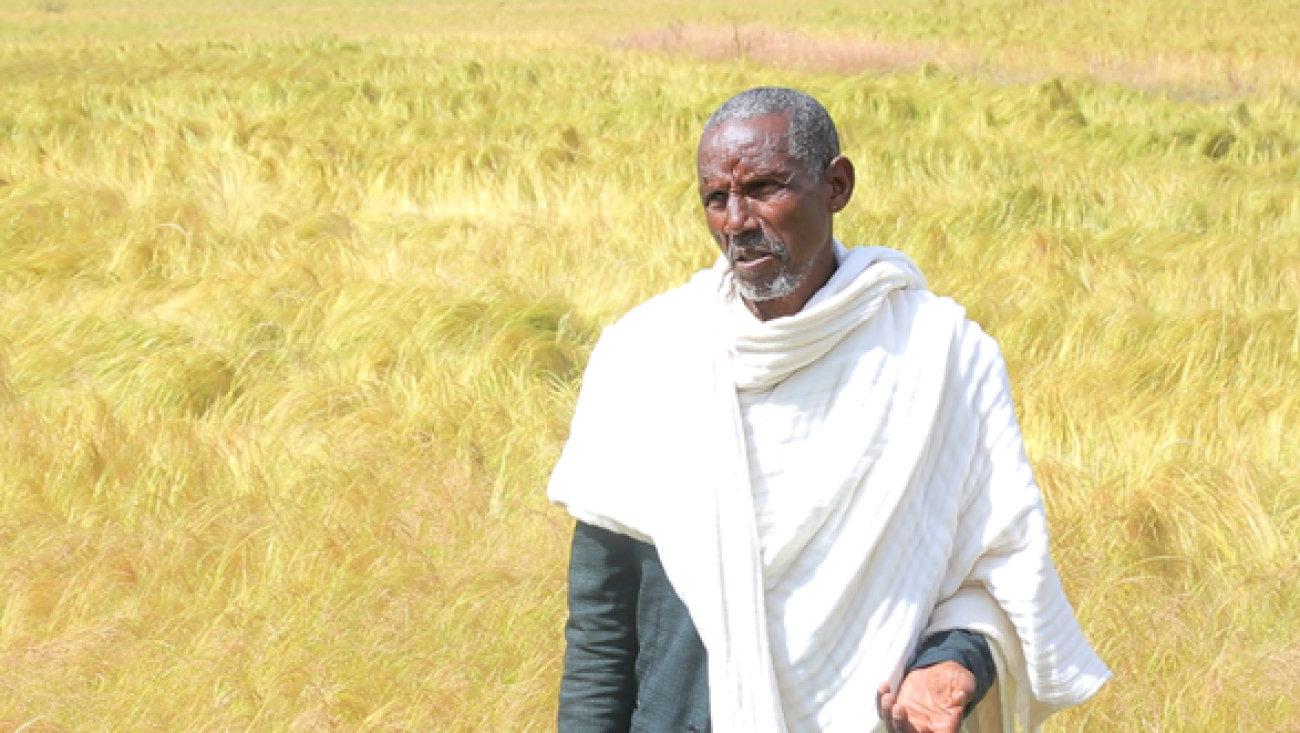New crops for new hope in Tigray

UNOPS' project is providing support to restoring the agriculture production in Tigray.
The crops of the farming families in Atsbi Wonberta and Tsirae Wonberta, Tigray suffered significantly from the locust infestation for the last several years, after a major outbreak of desert locusts began developing. With many of them relying on agriculture as their only source of income, this posed a serious threat to their livelihood and impact to the entire community.
In order to manage the invasion, the Ethiopia Emergency Locust Response Project was designed and funded by the World Bank (WB) from June 2020. On behalf of the Government of Ethiopia and the Ministry of Agriculture, UNOPS implemented a component of the project - Livelihoods Protection and Rehabilitation in Tigray Regional State.
“My family of five relies on farming as our source of income. We sow wheat, teff, millet and barley. This land is best for harvesting teff, millet and maize. During the autumn season we sow millet and maize, during the winter season we use an irrigation source for teff and bean sowing. The Ethiopian Government and World Bank provided us with certified seeds and two types of fertilizers. It is all upon God's will, but I expect around four quintals from this farm,” says Abrha Tesfay, one of the beneficiaries of the ELRP project in Tigray.
This USD 2.4 million Project was designed to safeguard the poor and vulnerable people from human capital and asset loss, enhance their access to food, rehabilitate food production systems and livelihoods that have been damaged or destroyed by swarms. UNOPS provided different support to the final beneficiaries such as procurement and delivery of maize, teff, wheat and chickpea seeds, urea and NPS fertilizers, and organised two types of training thus reaching over 64,000 households.
“I have three sons and a husband. Our source of income is my husband's pension payment and farming [yield] regardless if it's good or not. We can grow cereal, teff and anything else on our land. The project supported us to get teff seeds and fertilizer, and I would like to say thank you,” said Maekelesh Aregawi, the project beneficiary from Tsirae Wonberta.
The Project covered 28 woredas in Tigray, thus providing support to restoring the agriculture production. The area coverage for crop seed was 23,788 hectares, exceeding the initial set target. Beneficiaries were provided with kekeba, kingbird and wane wheat seeds, quncho and boset teff seeds, melkassa-4 maize and chickpea seeds, while in addition to this, urea and NPS fertilizers were also delivered.





